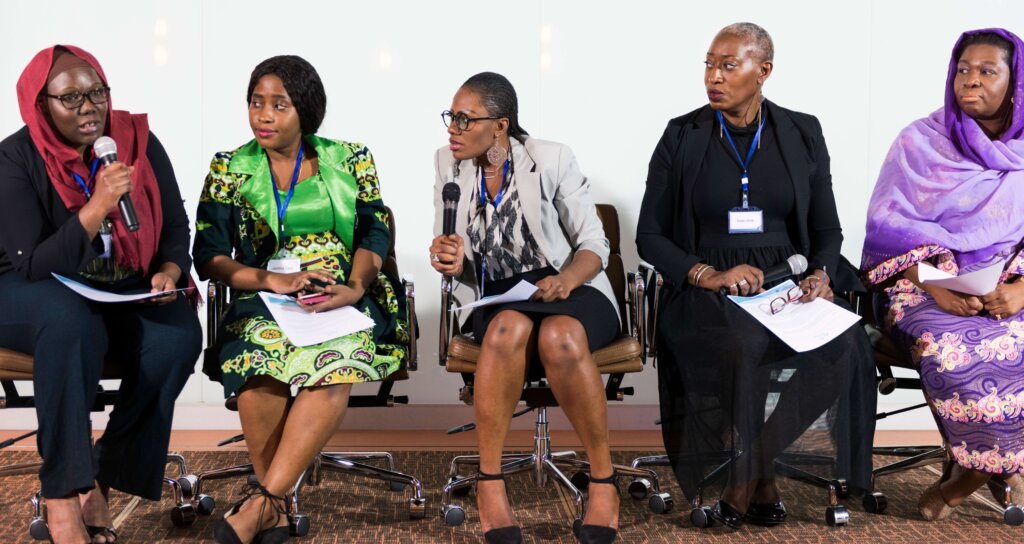Hey tribe!
In this week’s edition of Black Voices in Tech, we’re coming in H-O-T, hot! We’re bringing you a fresh new interview from Arizona to discuss the lived realities of Black engineers in tech with one of its newest residents.
The U.S. Bureau of Labor reports that 4.5 % of engineering managers identified as Black in 2021, while nearly 80% identified as white. Given the limited number of Black engineering professionals in leadership positions in tech, it should be no surprise that many continue to feel isolated and maintain that the American workplace is not structured with their lived experiences in mind.
Earlier this month, we connected with Axon’s Senior Hardware Engineering Program Manager and Arizona resident Neil Miller to unpack the topic further and better capture the perspective of a Black engineering manager impacted by those figures.
After our chat, we learned more about Miller’s excellent career track and obtained invaluable career tips and meaningful insights about the unique challenges Black engineering managers face within the tech industry as they climb the corporate ladder being the only one. Here’s what Miller shared with us…
Can you please share a bit of information about your educational background?
Miller: “All my education was done in the United Kingdom. I did a bachelor’s degree in electronic engineering (BEng., Electronic Engineering) at the University of Central Lancashire. I chose that university because it has a solid engineering program. I returned to my hometown in Birmingham and did a master’s degree in electronic engineering and information technology (MSc Eng., Electronics, and IT). Afterwards, I went into a Ph.D. program in Electronic Engineering focused specifically on integrated circuit design.”
What initially triggered your passion for the technology industry?
Miller: “I knew right after high school that I wanted to be an electronic engineer. I got into it because I liked radios and sound systems. I was always intrigued by technology throughout my childhood and always wanted to know how things worked, such as amplifiers and other electronics. I didn’t realize how much math was involved in tech, but I was excited by the practical side of how things functioned and found it all exciting.”
How have your upbringing and community experiences motivated or helped you achieve your career goals?
Miller: “My dad taught me math as a kid. He would give me money – ten pence, which is less than fifty cents or candy if I got certain questions right. I quickly found that I was good at math, and I gravitated toward the field. Also, in high school, I took design and tech as an elective. The course involved electronics, and I preferred the electronic component over the mechanical engineering part. Beyond that, I was involved in my church community, and many individuals completed either masters or doctorate degrees. Those degrees were in the medical fields rather than in tech. However, I looked up to them because they were role models and led me to gravitate towards education. I could have done sports, but I gravitated toward education because I had strong role models, primarily in the academic space. This is exactly the influence that put me on the path towards education.”
What key motivator or experience encouraged you to pursue your career during uncertainty?
Miller: “I took part in an apprenticeship program earlier. I had a Black manager. I expressed to him that I intended on doing a degree after completing my engineering diploma program. He encouraged me to pursue my education. He said, ‘If you don’t want to be stuck doing a technician job that you’re currently working on for the rest of your career, it would be best to pursue a degree.’ He was undoubtedly a powerful and positive role model for me in that first job during the apprenticeship program.
What is the most challenging part of your current professional role?
Miller: “Deadlines are the most challenging part. Companies want to get products to market as quickly as possible in the tech industry. If you don’t launch when you’re supposed to launch, your competitors will do it ahead of you, which means you’ve always got to meet deadlines. I manage many projects and programs, and there are many dependencies involving different people who play a role in my deliverables. Therefore, knowing how to interact with people is essential – having that social game is critical. There’s technical engineering, but you must learn how to master social engineering, which you only learn on the job by interacting with people.
This networking is vital for people who are starting a new job. They must know how to network with their peers and know when to talk to the right people.”
What are some common mistakes that engineers need to avoid or address to succeed in their careers?
Miller: “Tech is so vast. You can be a programmer who writes code, a programmer who tests the code, a mechanical or electrical design engineer, and the software side of things. Often you come across new hires or people straight out of university who don’t know what they want to do within tech. They land a role which defines them for the first three or four years of their career. Those choices then lay out what their jobs are going to be long-term. I made the mistake of landing into a testing role early in my career, and then I was only seen as a tester. It’s not about just finding a role or a job when you first start your career. You must make sure that the role is a good fit. Your first role could be the foundation of your career, so it’s essential to think it through. Fortunately, I was able to break out of that role, but this isn’t always the case for many engineers.
How were you able to pivot or find new career growth opportunities?
Miller: “I always kept current on the skills that I had. I had conversations with individuals in my network who were in roles I was interested in. I made sure to ask them what types of skills I needed to have to obtain those positions. I made sure to show interest in other roles beyond my own. I also spoke to my manager at the time and expressed that I wanted to transition to other parts, and the opportunities came. You must have those conversations if you’re not satisfied with your position. Don’t just stay there.
How has diversity played a part in your career?
Miller: “When I joined the tech industry, there weren’t too many Black engineers. I was fortunate to have a Black mentor at my first job in my early career. Even in my university days, there were very few of us. I was often the only Black person in the classroom doing electronic engineering. While doing my master’s and doctorate degrees early in my career as a professional engineer in a corporate work setting, it didn’t change that much either. As a result, I’ve sometimes just gotten used to being the lone Black engineer.
In Canada, that opened a little bit more than my time spent in the UK – apart from the Black mentor that I mentioned earlier. The companies I’ve worked for have looked at me for my abilities. Diversity is undoubtedly more of a thing today, more of a present factor in 2022 than in the 90s or early 2000s. Diversity wasn’t often spoken about in the industry previously. I can’t pinpoint a specific moment in time of how exactly diversity or its absence has shaped my career. I’ve just soldiered through like many of us in this space in every position I held.
There appears to be a lot more diversity in the USA if you compare it to Canada and the UK in terms of the type of diversity that includes all ethnicities or countries, races, and cultural backgrounds. However, concerning the Black experience, the representation is still severely lacking.
From my perspective, reflecting on my earlier experiences, we’ve always had to do more to get the same. I’ve always felt as a Black professional that I had to do more to get the same and keep challenging myself more. I am not sure whether that approach or mentality is right or wrong, but it has shaped my career. This sentiment has pushed me to distinguish myself among my peers.
Today, I am both encouraged and inspired when I see Black professionals as VPs, Senior VPs, Directors, and those in similar leadership positions like me. I know where I’ve come. I’ve worked hard since the earlier days of my career. I’ve overcome unique challenges and can deeply understand how tough it can be to attain those career goals as a Black professional.”
What is your advice to companies looking to create more inclusive places for Black engineers or professionals in tech?
Miller: “Companies should make a more tangible investment in the Black community by offering leadership and mentorship training. Many Black professionals need to understand the tech industry’s business language, and those types of programs will help. They also have the potential to open more doors to people of colour who may not commonly have access to those channels. It’s not about just hiring or recruiting their quotas. They need to be fully engaged in the community and the neighbourhoods where Black people reside if they desire to make a difference.
On a micro-level, companies need to encourage their managers to have conversations with their Black employees about leadership, informing them on how to build a career plan to attain a promotion, and integrate those mentorship opportunities within all their employee assessments or touchpoints.”
We hope you’ve enjoyed learning more about this accomplished engineer and can make good use of his advice as you carve your career path in tech.”
Are you looking for a rewarding job opportunity to build your career in tech like Neil Miller? Need help to land that first tech job? Sign up for our Early Career Hook Up initiative by uploading your resume to our portal to easily connect with our recruiters.
About the Early Career Hook Up Initiative
We have a portfolio of accomplished business partners and leading tech organizations looking to recruit 375 early careers Black identified professionals and interns yearly for the next three years. Visit our Early Career Hook Up page to upload your resume, and our recruiters will get you started on the path toward career success!






